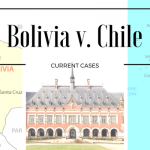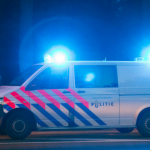The International Court of Justice held its first hearing today in the case of Ukraine versus Russia. A high-profile case dealing with the conflict in eastern Ukraine and Russian’s involvement in it, and Russia’s annexation of Crimea, has the potential of having profound political impact. But that may be wishful thinking, for the case provides ample opportunity for the Court to decide the cases on narrow grounds in an inconsequential judgement. However, today was more about jurisdiction and Ukraine’s request for provisional measures.
Request for provisional measures
An order for provisional measures can be issued in order to make sure that there is a still a case, still rights to be respected or restored when the Court hears the parties about the substantive matter of the case. An order aims to freeze the situation before the dispute is prematurely and one-sidedly settled by facts on the ground. Ukraine is seeking an order that tells Russia to ’refrain from any action which might aggravate or extend the dispute’, to ’exercise appropriate control over its border’ and ’halt and prevent all transfers from [Russian] territory (…) of money, weapons, vehicles’ etc. But I don’t see how the provisional measures requested today, materially differ from the relief Ukraine is asking the Court for in the merits. In both instances, for instances, Ukraine wants the support by Russia for the separatists to be stopped. On the other hand, what other provisional measures could it ask? I am not sure how the Court will respond.
Jurisdiction
But before the Court can order binding provisional measures, it must satisfy itself that the Court will most probably have jurisdiction (prima facie jurisdiction). This means, as in most other cases, that this case before the ICJ is defined by the grounds for the Court’s jurisdiction. Ukraine could only plausibly put forward the Convention for the Suppression of the Financing of Terrorism (CFT), and the Convention on the Elimination of Racial Discrimination (CERD). This narrows the case down significantly as it must go through the funnel of these conventions. But that brings with it a host of legal problems that the Ukrainian delegation sought to solve today.
Terrorism
First, in its written Application and arguments during the hearing Ukraine almost matter-of-factly characterized some acts of the separatists as acts of terrorism. These were mostly intentional and indiscriminate attacks on civilian populations. Sure, such attacks in the context of an armed conflict are in any case grave violations of international humanitarian law. Whether they also constitute acts of terrorism is a definitional issue that can be solved by the referring to Article 2 CFT. And the MH17 incident, where separatists downed a civilian airliner with a Russian missile, even more easily falls within the scope of a treaty that is referenced in the CFT. A problem may lie in the nature of the CFT. Ukraine relies on CFT obligations concerning cooperation and investigations financing of terrorism. That is the nature of the treaty, and Ukraine has a fine case on that score.
State responsibility and the use of force
However, Ukraine argued during the hearing, that it is antithetical to think that a convention like the CTF would not cover state-sponsored terrorism. Because the direct involvement would be the polar opposite of a specific obligation under Article 18 CFT, namely to take ’all practicable measures’ ’to prevent and counter preparations’ of terrorist acts. I am not sure if that is not a bit of an overreach. In its Application, Ukraine is seeking a declaration from the Court that the supply of money, weapons and so on by Russia to the separatists, violates Article 18 CFT only because it cannot argue that it is a use of force under Article 2(4) of the UN Charter. The Court has no jurisdiction to decide the case on the basis of the UN Charter, only the two mentioned treaties. Should Ukraine be able to bring this issue in through the back door of the CFT? Mind you, this is the first time that the ICJ has a case about the CFT, so there will be no previous case law to rely on.
Racial Discrimination
As a testimony to the current state of international law, the Court cannot decide on the legality of the annexation of Crimea by Russia, but only one of its alleged consequences, i.e. the systematic discrimination of certain groups. And Ukraine makes a strong case. There is abundant evidence that Russia pursues a ’Russification’ program. Based on race and ethnicity, Crimean groups like the Tatars are systematically being excluded from political participation or asserting all kinds of other international rights. Allegedly. CERD is Ukraine’s gateway to holding Russia directly accountable for its actions. And as I said, the Court is explicitly not asked to decide the propriety of Crimea’s annexation.
Lawfare
If the case moves to the merit phase, the Court may very well determine that Russia has violated international law. With respect to the Financing of Terrorism Convention, such a determination could be very narrow, confined to Russia’s non-cooperation with investigations. Unless it takes a broad view of the Convention, and Article 18 in particular, as requested by Ukraine. The Court may note or establish the extent of Russia’s involvement with the separatists in Ukraine, but come to the conclusion that it was not asked to come to a legal judgement on that point. But for Ukraine that may not be a loss. Ukraine will have made its point and can pocket an authoritative statement on Russia’s behaviour. That is called lawfare. Anything more will only compound the win for Ukraine. As I mentioned, I consider Ukraine’s chances better to get a wider verdict under CERD.
Tomorrow, Russia will have its say. Very much looking forward to it. Although these hearings are formally only about the request for provisional measures, Ukraine laid out the bulk of its wider claims. It was broadcasted live by the ICJ and gained much publicity. Ukraine has already won one legal battle. And she may win more, but ultimately lose the actual war for eastern Ukraine and Crimea.
Any questions or comments? Let me know in the comments below, or through Facebook or Twitter.




[…] but also an unexpected appearance on Canadian tv. All thanks to Twitter and the case between Ukraine and Russia before the International Court of Justice … Oh, and another PhD defense of a former colleague. […]